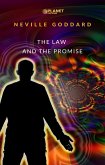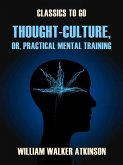In 'Thought-Culture; Or, Practical Mental Training' by William Walker Atkinson, the author delves into the realm of mental cultivation and self-improvement. Through a series of practical exercises and guidance, Atkinson provides readers with a blueprint for enhancing their mental faculties and achieving a higher state of consciousness. Written in a clear and accessible style, the book combines elements of psychology, philosophy, and self-help to offer a comprehensive guide to mastering the power of thought. Atkinson's emphasis on the importance of mental discipline and focus makes this work a valuable resource for anyone seeking personal growth and transformation. William Walker Atkinson, a pioneer in the New Thought movement, was a prolific writer and advocate for the power of the mind. His background in law and business, combined with his deep interest in metaphysics and spirituality, informs his approach to thought culture. Atkinson's own journey towards self-improvement and enlightenment likely inspired him to share his knowledge with others through this book. I highly recommend 'Thought-Culture; Or, Practical Mental Training' to readers interested in harnessing the power of their thoughts and unlocking their full potential. This insightful work offers practical advice and exercises that can help individuals cultivate a deeper understanding of themselves and the world around them.
Dieser Download kann aus rechtlichen Gründen nur mit Rechnungsadresse in A, B, BG, CY, CZ, D, DK, EW, E, FIN, F, GR, H, IRL, I, LT, L, LR, M, NL, PL, P, R, S, SLO, SK ausgeliefert werden.









